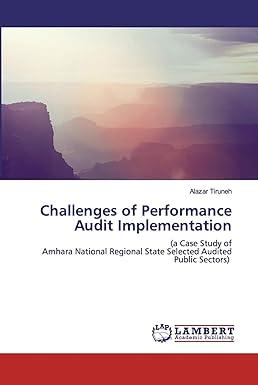Question
Jin and Sana resided in Utah at the time their petition was filed. Before 2016 they had a job with a business in his locality.
Jin and Sana resided in Utah at the time their petition was filed. Before 2016 they had a job with a business in his locality. Sometime in 2015 he learned that his employer planned to move the business to Costa Rica. In anticipation of that event Jin sought to find another source of income and decided that he would become a professional gambler. Sana also worked, and Jin thought that another source of income would allow her to stay home with their child.
Before Jins decision to become a professional gambler, they had been casual gamblers but they did not wager large amounts. Sometime during 2015 they began to invest heavily in gambling (mainly playing slot machines). They were born in China, and their religious and cultural beliefs were derived from their Chinese background. They believed in Feng Shui. Because of this belief and other religious and cultural beliefs, they expected that certain days were lucky days or days on which their chances of successful gambling increased. They were cognizant that slot machine odds favored the casinos but expected to overcome those odds by attempting to gamble on their lucky days. In addition, they would watch other slot machine players; and if they had excessive losses, they believed that taking over machines of losing players provided more opportunity. That was their plan for making a profit.
Initially, their Feng Shui/cultural approach resulted in success. Accordingly, they increased the amounts wagered in 2015 and continued doing so through 2016 and part of 2017. In early 2017 they realized that they were about $200,000 in debt and that their attempt to make a profit had failed. they had withdrawn money from their retirement funds and borrowed against various assets to finance their attempt to make a profit from gambling. During 2016 they were employed in West Jordan, Utah, and traveled approximately 130 miles to Nevada to pursue gambling.
During 2016 they traveled 130 miles each way to Nevada casinos on Friday afternoons and gambled for long hours, sleeping only a few hours per night. They did this every weekend and on legal holidays when they were off work. Jin and Sana, because of their lucky day beliefs, generally limited their slot machine playing to one of the two individualsthe one with the more favorable lucky day indicators.
During 2016 they reported combined winnings of $852,230. That included $586,038 of winnings that the casinos reported to the IRS on Forms W-2G, Certain Gambling Winnings (winnings in excess of $1,200), and $266,192 of winnings that were not reflected on Forms W-2G (winnings in amounts less than $1,200). Of the $586,038, Jins Forms W-2G reflected $500,490 and Sanas Forms W-2G reflected $85,548. For 2016 their losses exceeded their gains by approximately $200,000.
Please summarize the important facts, identify all of the correct primary authorities, incorporate the facts in the case with the applicable tax rules, and suggestions for their 2016 tax return.
Step by Step Solution
There are 3 Steps involved in it
Step: 1

Get Instant Access to Expert-Tailored Solutions
See step-by-step solutions with expert insights and AI powered tools for academic success
Step: 2

Step: 3

Ace Your Homework with AI
Get the answers you need in no time with our AI-driven, step-by-step assistance
Get Started


